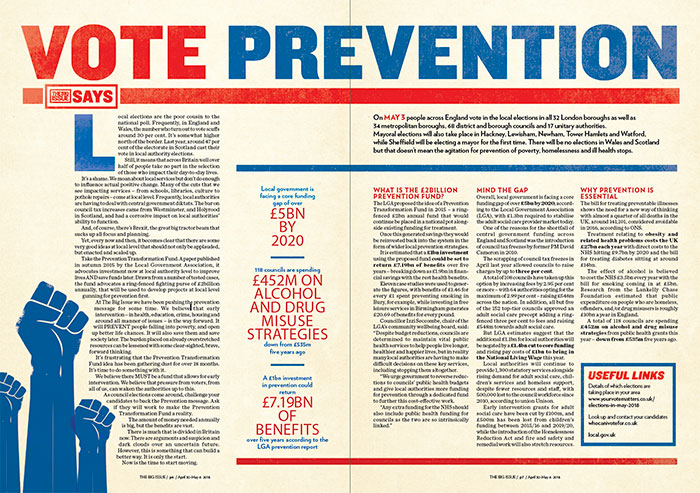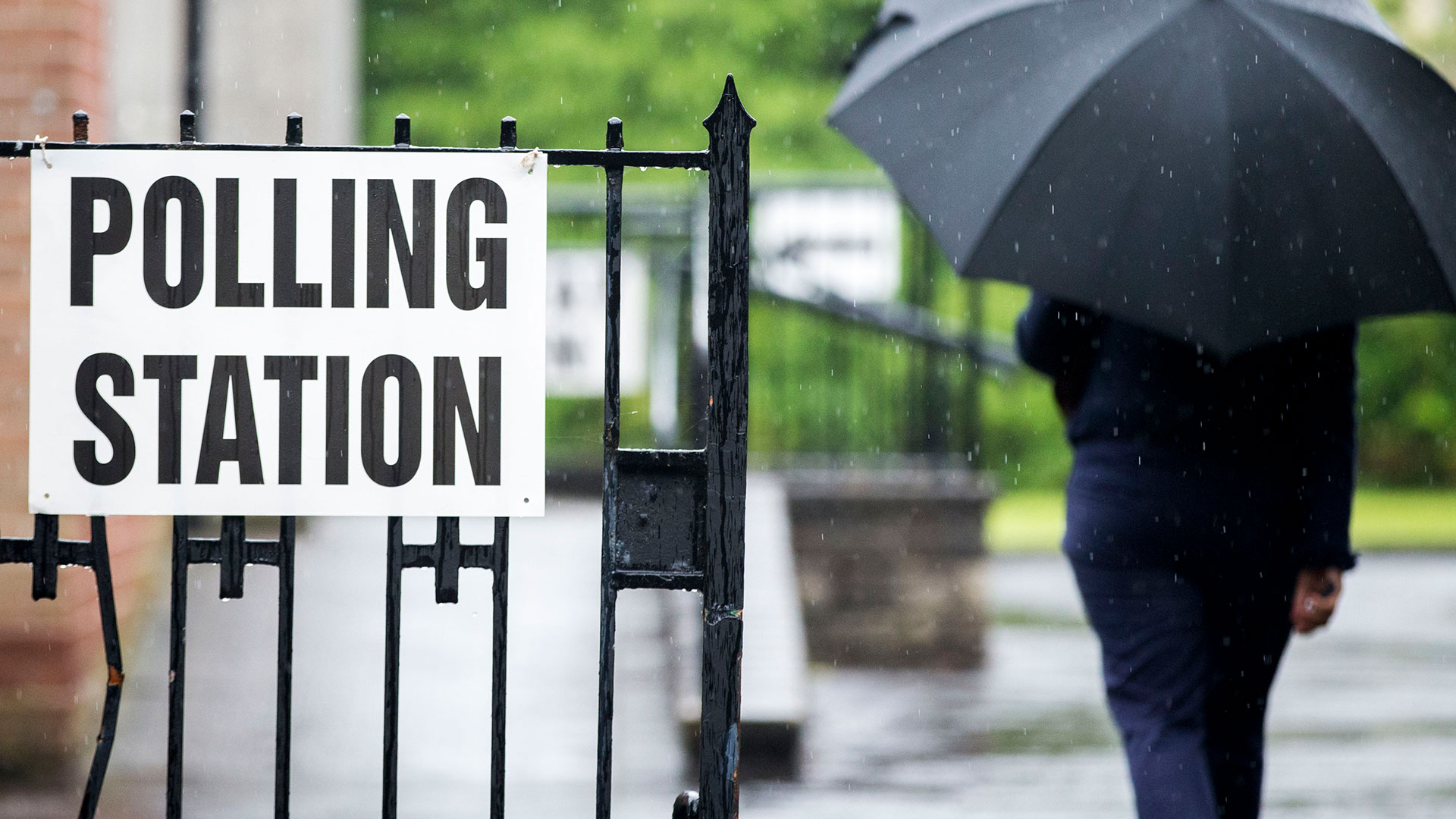At The Big Issue we have been pushing the prevention message for some time. We believe that early intervention – in health, education, crime, housing and around all manner of issues – is the way forward. It will PREVENT people falling into poverty, and open up better life chances. It will also save them and save society later. The burden placed on already overstretched resources can be lessened with some clear-sighted, brave, forward thinking.
It’s frustrating that the Prevention Transformation Fund idea has been gathering dust for over 18 months. It’s time to do something with it.
We believe there MUST be a fund that allows for early intervention. We believe that pressure from voters, from all of us, can waken the authorities up to this.
As council elections come around, challenge your candidates to back the prevention message. Ask if they will work to make the Prevention Transformation Fund a reality.
The amount of money needed annually is big, but the benefits are vast.
Advertising helps fund Big Issue’s mission to end poverty
There is much that is divided in Britain now. There are arguments and suspicion and dark clouds over an uncertain future. However, this is something that can build a better way. It is only the start.
Now is the time to start moving.
To the polls
On May 3 people across England vote in the local elections in all 32 London boroughs as well as 34 metropolitan boroughs, 68 district and borough councils and 17 unitary authorities.
Mayoral elections will also take place in Hackney, Lewisham, Newham, Tower Hamlets and Watford, while Sheffield will be electing a mayor for the first time.
There will be no elections in Wales and Scotland but that doesn’t mean the agitation for prevention of poverty, homelessness and ill health stops.
Advertising helps fund Big Issue’s mission to end poverty
What is the £2 billion prevention fund?
The LGA proposed the idea of a Prevention Transformation Fund in 2015 – a ring-fenced £2bn annual fund that would continue be placed in a national pot alongside existing funding for treatment.
Once this generated savings they would be reinvested back into the system in the form of wider local prevention strategies.
It is estimated that a £1bn investment using the proposed fund could be set to return £7.19bn of benefits over five years – breaking down as £1.9bn in financial savings with the rest health benefits.
We urge government to reverse reductions to councils’ public health budgets and give local authorities more funding for prevention through a dedicated fund to further this cost-effective work
Eleven case studies were used to generate the figures, with benefits of £1.46 for every £1 spent preventing smoking in Bury, for example, while investing in free leisure services in Birmingham generates £20.69 of benefits for every pound.
Councillor Izzi Seccombe, chair of the LGA’s community wellbeing board, said: “Despite budget reductions, councils are determined to maintain vital public health services to help people live longer, healthier and happier lives, but in reality many local authorities are having to make difficult decisions on these key services, including stopping them altogether.
Advertising helps fund Big Issue’s mission to end poverty
“We urge government to reverse reductions to councils’ public health budgets and give local authorities more funding for prevention through a dedicated fund to further this cost-effective work.
“Any extra funding for the NHS should also include public health funding for councils as the two are so intrinsically linked.”
Mind the gap
Overall, local government is facing a core funding gap of over £5bn by 2020, according to the Local Government Association (LGA), with £1.3bn required to stabilise the adult social care provider market today.
One of the reasons for the shortfall of central government funding across England and Scotland was the introduction of council tax freezes by former PM David Cameron in 2010.
The scrapping of council tax freezes in April last year allowed councils to raise charges by up to three per cent.
Advertising helps fund Big Issue’s mission to end poverty
A total of 108 councils have taken up this option by increasing fees by 2.95 per cent or more – with 64 authorities opting for the maximum of 2.99 per cent – raising £548m across the nation. In addition, all but five of the 152 top-tier councils approved an adult social care precept adding a ring-fenced three per cent to fees and raising £548m towards adult social care.
But LGA estimates suggest that the additional £1.1bn for local authorities will be negated by a £1.4bn cut to core funding and rising pay costs of £1bn to bring in the National Living Wage this year.
Local authorities will continue to provide 1,300 statutory services alongside rising demand for adult social care, children’s services and homeless support, despite fewer resources and staff, with 500,000 lost to the council workforce since 2010, according to union Unison.
Early intervention grants for adult social care have been cut by £100m, and £500m has been lost from children’s funding between 2015/16 and 2019/20, while the introduction of the Homelessness Reduction Act and fire and safety and remedial work will also stretch resources.
Why prevention is essential
Advertising helps fund Big Issue’s mission to end poverty
The bill for treating preventable illnesses shows the need for a new way of thinking with almost a quarter of all deaths in the UK, around 141,101, considered avoidable in 2016, according to ONS.
Treatment relating to obesity and related health problems costs the UK £27bn each year with direct costs to the NHS hitting £9.7bn by 2020 and the bill for treating diabetes sitting at around £14bn.
The effect of alcohol is believed to cost the NHS £3.5bn every year with the bill for smoking coming in at £5bn. Research from the Lankelly Chase Foundation estimated that public expenditure on people who are homeless, offenders, and/or drug misusers is roughly £10bn a year in England.
A total of 118 councils are spending £452m on alcohol and drug misuse strategies from public health grants this year – down from £535m five years ago.
Details of which elections are taking place in your area can be found here. Look up and contact your candidates here.
Advertising helps fund Big Issue’s mission to end poverty










